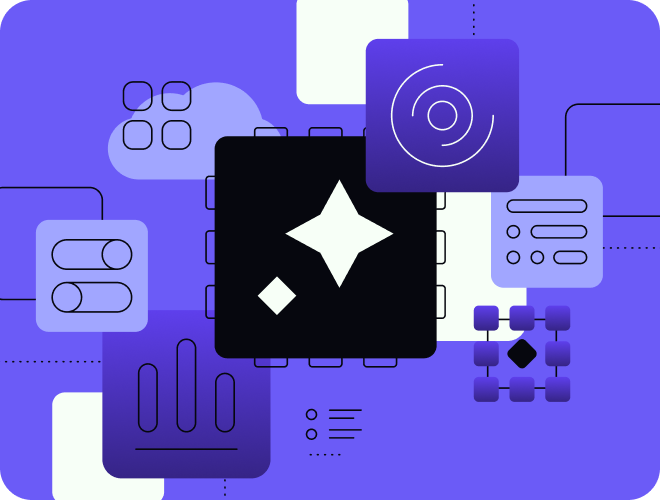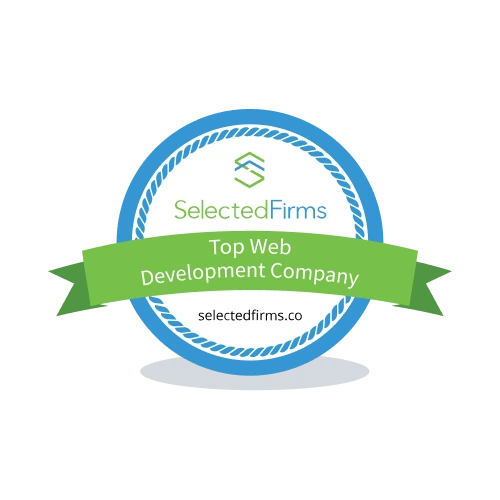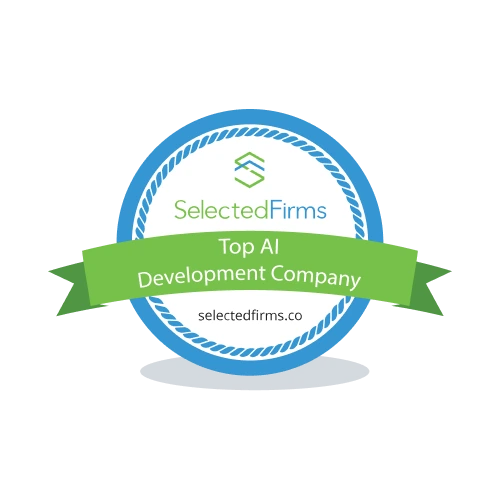Types of Software Development Services

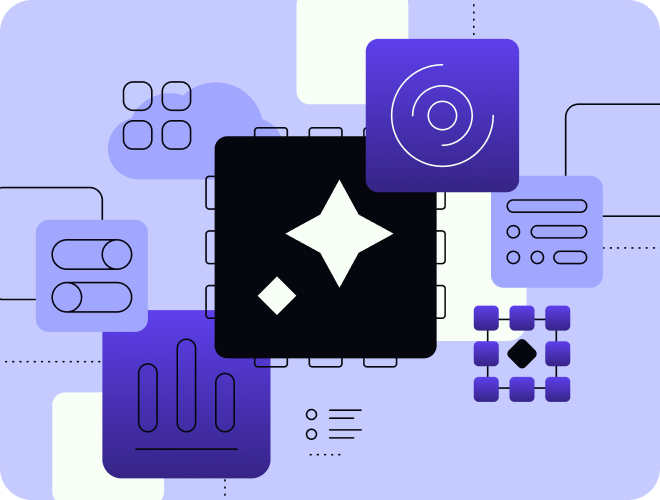
.avif)
Subscribe to our Newsletter
The demand for software development services is growing as businesses look for solutions that fit their stage, budget, and goals. From startups testing new ideas to enterprises running complex operations, the right service can distinguish between progress and delayed growth.
Here are some of the types of software development services covered in this guide:
- Custom software development for tailored solutions that fit exact business processes
- Web and mobile application development to reach users across platforms and devices
- Cloud applications that scale quickly and support remote teams
- SaaS platforms with subscription models for predictable growth
- Specialized services like AI, blockchain, or embedded systems for advanced needs
- Support and optimization services, including testing, DevOps, and modernization
Each category solves different challenges, some help you move fast, others focus on security, integration, or scaling.
What Are Software Development Services?
Software development services cover the planning, design, coding, testing, and maintenance of software solutions that support business objectives and improve operations. A software development company or software development services company helps organizations develop custom software, build mobile applications, or deliver scalable web development projects.
These services go far beyond writing code.
A typical software development lifecycle includes discovery, technical planning, UI/UX design, software engineering, deployment, and ongoing support. Skilled software developers, project managers, and software testing specialists work together to ensure that each stage produces reliable and functional software.
Businesses turn to custom software development agencies when off-the-shelf software fails to meet their needs. A trusted software development partner can create custom solutions for supply chain management, inventory management, or e-commerce software that run across multiple platforms and mobile devices.
Other projects may apply system integration, cloud computing, embedded systems, or implement artificial intelligence into software applications.
Types of Software Development Services You Should Know About
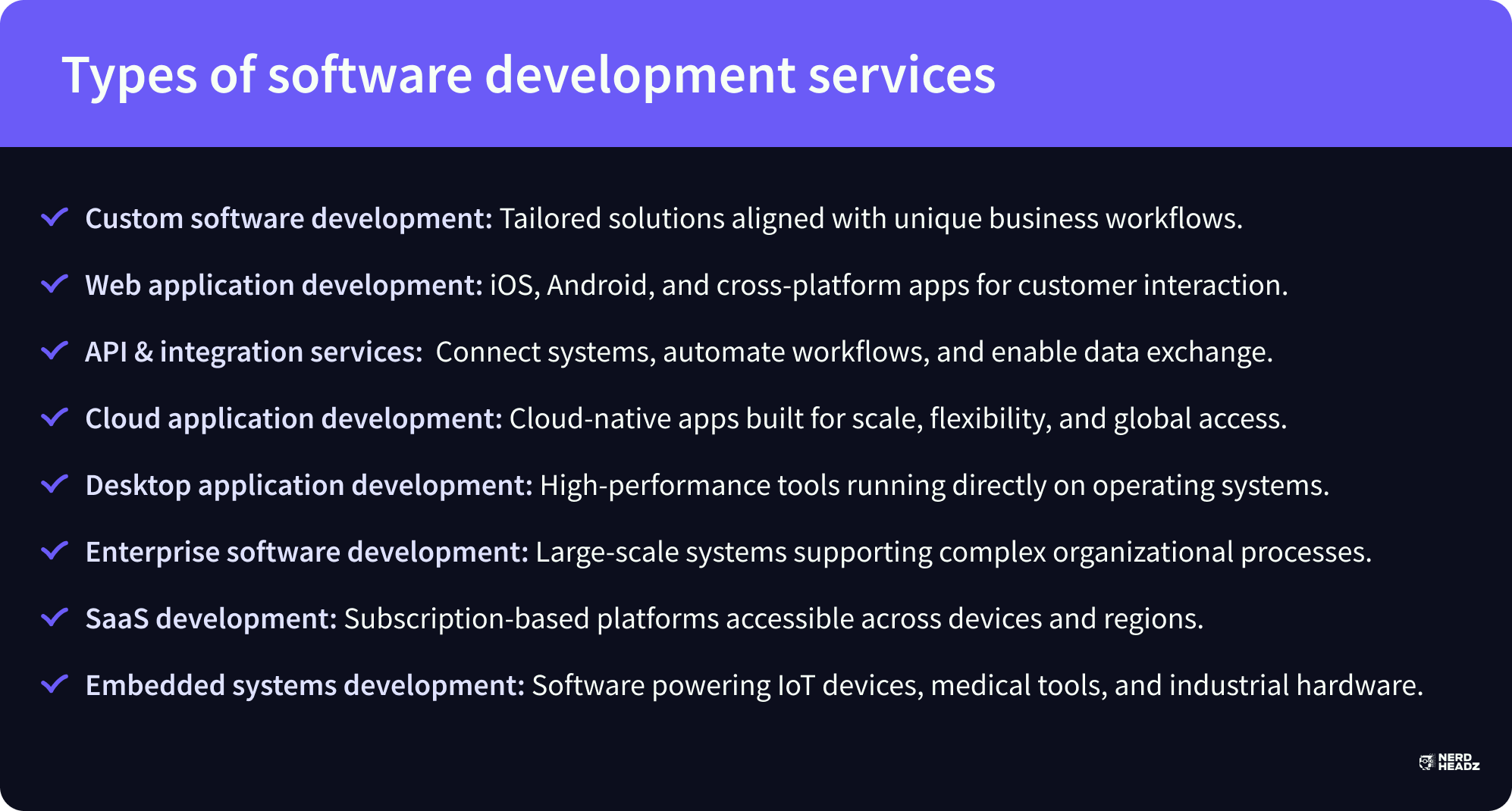
Custom Software Development Services
Custom software development focuses on building applications tailored to unique business processes rather than relying on off-the-shelf software. A custom software development company works with stakeholders to map goals, design the development process, and create software solutions that scale.
Businesses often choose this service for:
- Custom software solutions that match exact workflow automations and operations
- System integration with CRMs, ERPs, or existing systems
- Control over security, compliance, and infrastructure
- Long-term adaptability with a dedicated software development team
These projects may involve enterprise software, supply chain management tools, or industry-specific software development. With the right software engineers, companies gain solutions that remain flexible, secure, and aligned with growing business needs.
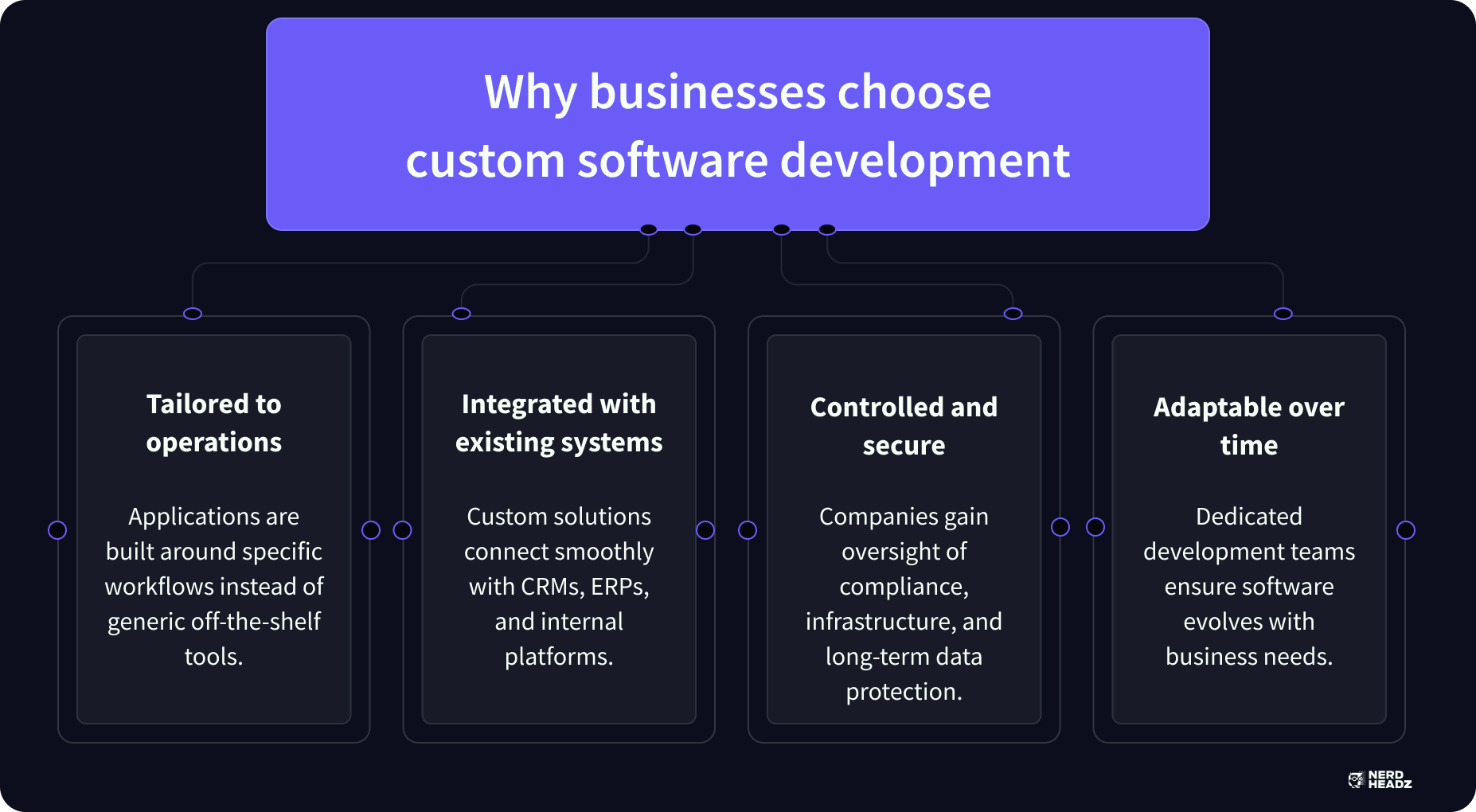
Web Application Development Services
Web development is one of the most common software development services, covering everything from commerce software to complex e-commerce software platforms. A software development agency specializing in web applications ensures accessibility across multiple platforms and mobile devices.
Key aspects include:
- Agile development and modern programming languages for faster delivery
- Built-in software testing, quality assurance, and robust security measures
- Cross-platform development to support scalability and future updates
- Integration with APIs and third-party systems for smoother workflows
Strong web development companies focus on usability, performance, and security, making web applications a cornerstone of digital transformation and long-term growth.
Mobile App Development Services (iOS, Android, Cross-Platform)
Mobile app development is one of the most widely used software development services, covering native iOS apps, Android apps, and cross-platform development. A software development company builds mobile applications that extend core business processes, improve customer interaction, and connect with existing software solutions.
Typical mobile development projects include:
- iOS or Android apps built with platform-specific frameworks
- Cross-platform mobile applications developed to reduce development costs and speed up delivery
- Integration with APIs and system software for smoother workflows
- Use of cloud computing and secure storage to maintain software quality
Software developers and mobile developers usually apply agile development methods to keep apps scalable, secure, and easy to update, ensuring the software remains relevant over time.
API Development & System Integration Services
API development and system integration services help organizations connect software applications, automate business processes, and eliminate silos between existing systems.
A software development services firm may design application programming interfaces that allow platforms like CRMs, ERPs, or third-party tools to exchange data efficiently.
Key aspects of integration services include:
- Custom APIs that connect cloud platforms, analytics tools, and internal systems
- Integration of legacy software with modern applications through new software modules
- Cross-platform data synchronization for mobile, web, and desktop environments
- Secure connections between third-party services, payment providers, or logistics platforms
Cloud Application Development Services
Cloud application development focuses on building software solutions that run on distributed infrastructure instead of local machines. This service category enables companies to develop software that scales quickly, supports remote teams, and lowers maintenance costs.
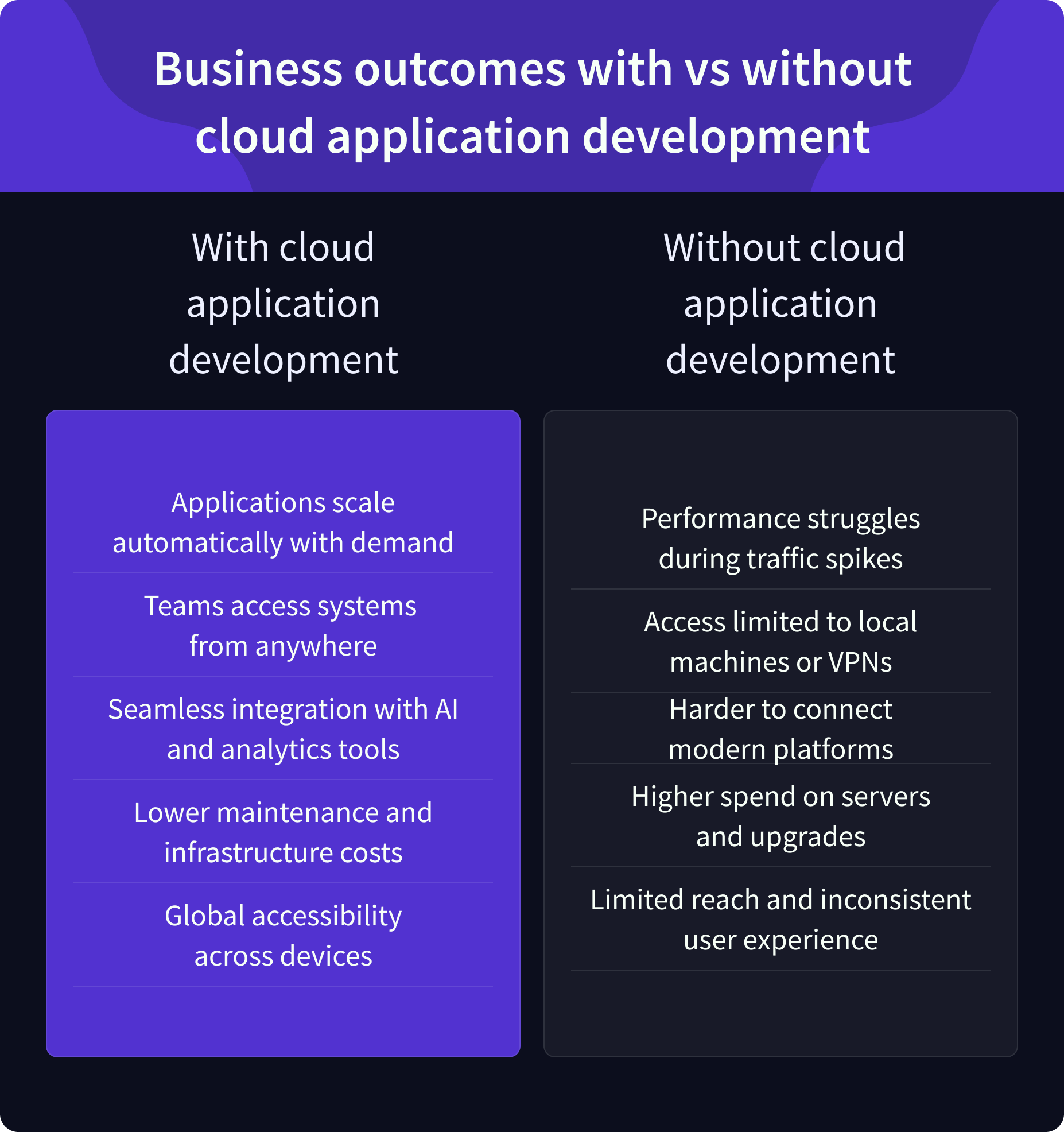
Key aspects include:
- Designing applications to run natively in cloud computing environments
- Enabling scalable software that adjusts to traffic and usage demands
- Supporting integration with AI tools, analytics, and third-party platforms
- Reducing reliance on off-the-shelf software by offering tailored cloud-native applications
Cloud-based development is widely used for mobile application development, SaaS development, and systems that need global accessibility across multiple devices.
Desktop Application Development Services
Desktop application development creates software applications designed to run directly on operating systems like Windows, macOS, or Linux.
Far from browser-based solutions, these applications provide high performance and access to system resources, making them suitable for industries with advanced technical requirements.
Examples of use cases:
- Building custom software for industries like healthcare, finance, or design
- Developing embedded systems and specialized engineering tools
- Creating commercial software products for mass distribution
- Leveraging modern frameworks to deliver scalable software with strong security
These projects require skilled software engineers and a structured software development life cycle to ensure performance, compatibility, and long-term reliability.
Enterprise Software Development Services
Enterprise software development delivers software solutions designed to support large-scale business processes across departments. These projects often require complex project management, integration with CRMs or ERPs, and the ability to scale as operations grow.
Typical features include:
- Custom software for supply chain, HR, or finance systems
- Advanced analytics and artificial intelligence for decision-making
- Centralized platforms that connect multiple software developers and teams
- A structured software development lifecycle to ensure reliability and security
Enterprise-level projects usually involve long-term collaboration with a development team to maintain functionality and adapt to evolving requirements.
SaaS (Software as a Service) Development Services
SaaS development focuses on building software applications that run in the cloud and are accessed through a subscription model. SaaS platforms are continuously updated and available on demand.
Key elements include:
- Web and mobile app access across devices
- Scalable infrastructure that supports rapid growth
- Multi-tenant architecture to serve different users on one platform
- Continuous updates within the software development process
SaaS is one of the fastest-growing types of software development services, helping businesses launch tools that serve global audiences without heavy upfront infrastructure costs.
Embedded Systems Development Services
Embedded systems development creates software solutions designed to run on specialized hardware. This service is standard in manufacturing, automotive, healthcare, and consumer electronics.
Examples of applications:
- Embedded systems in IoT devices, wearables, or medical equipment
- Real-time monitoring and automation in industrial systems
- Integration of artificial intelligence for smart functionality
- Development with a dedicated software development team skilled in low-level programming
These projects require precise control over hardware, optimized development processes, and rigorous testing to ensure stability and long-term performance.
Advanced & Specialized Software Development Services
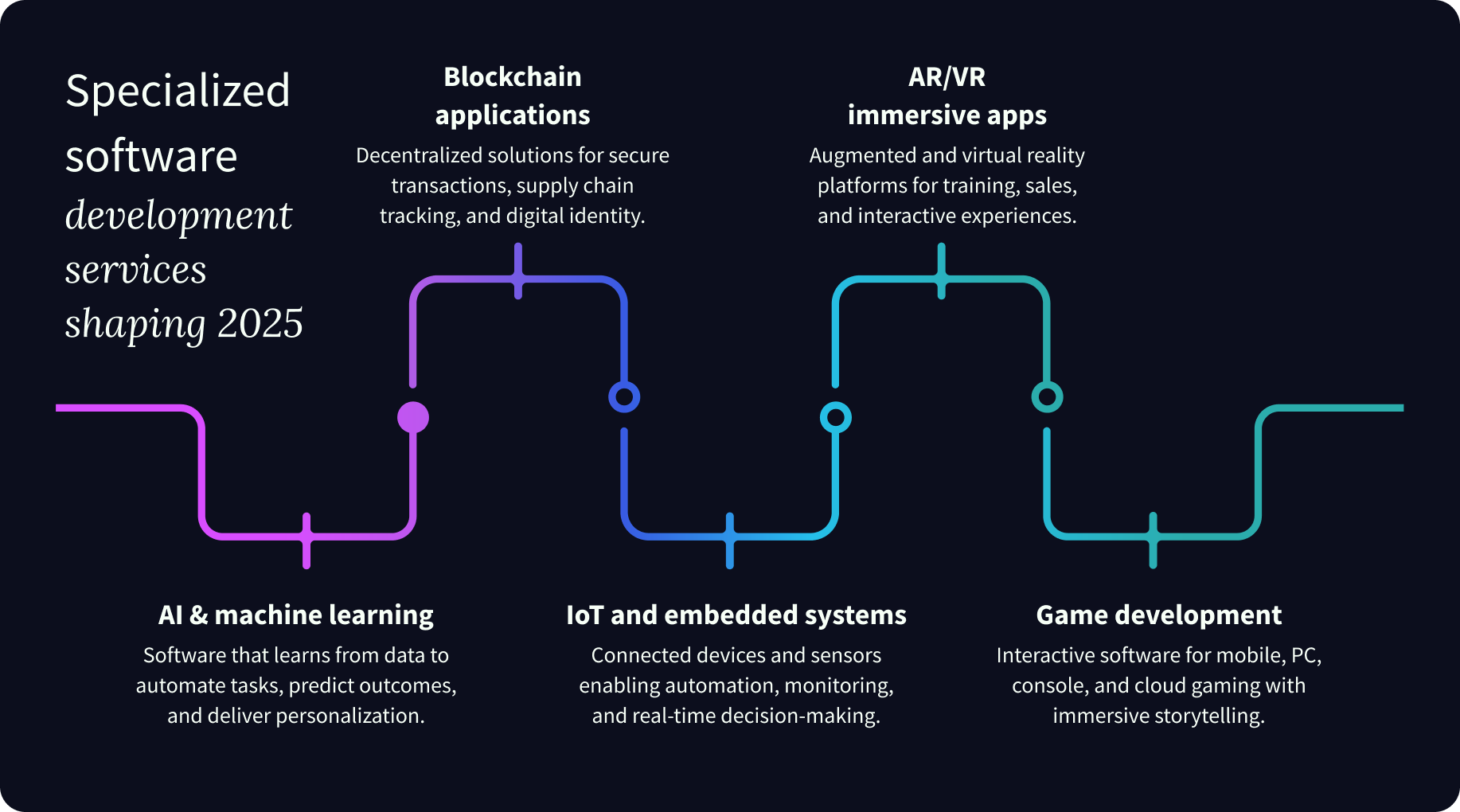
AI & Machine Learning Development Services
AI and machine learning development services focus on creating software solutions that can learn from data, recognize patterns, and make predictions. These services are applied across industries to improve decision-making, automate tasks, and personalize user experiences.
Common use cases include:
- Artificial intelligence models for customer support, fraud detection, or medical diagnostics
- Predictive analytics tools that adapt to evolving business processes
- Recommendation engines for e-commerce and media platforms
- Computer vision systems for manufacturing or logistics
Projects in this category often require skilled software developers, large datasets, and specialized frameworks to develop accurate, scalable, and secure software.
Blockchain Application Development Services
Blockchain development services focus on building decentralized software applications that prioritize transparency, trust, and security. A software development company offering these services creates solutions that go beyond cryptocurrencies, applying blockchain to multiple sectors.
Key applications include:
- Smart contracts to automate secure transactions
- Supply chain tracking for greater visibility and accountability
- Digital identity management to reduce fraud and ensure compliance
- Decentralized apps (dApps) that run across multiple platforms
These projects demand a clear development process, strong cryptographic knowledge, and collaboration between software development teams to deliver reliable and high-performing blockchain systems.
IoT and Embedded Software Solutions Services
IoT and embedded software services focus on developing software solutions that connect physical devices with digital systems. These services allow businesses to collect data, monitor performance, and automate processes in real time.
Examples include:
- IoT platforms for smart homes, healthcare monitoring, or industrial automation
- Embedded software for wearables, automotive systems, or medical equipment
- Integration of sensors and edge computing for faster decision-making
- Security features to protect connected devices and sensitive data
Such projects require a dedicated development team skilled in low-level programming, hardware integration, and long-term maintenance.
AR/VR and Immersive App Development Services
AR/VR development services create applications that deliver immersive digital experiences through augmented reality and virtual reality. These solutions are used in industries ranging from retail and edtech to real estate, proptech, and training.
Key applications include:
- Virtual product demos for e-commerce or B2B sales
- Training simulators for healthcare, aviation, and manufacturing
- Interactive learning apps and gamified education platforms
- Immersive real estate tours or architectural visualizations
Projects combine advanced design, software development expertise, and mobile application development frameworks to ensure cross-device compatibility and engaging user experiences.
Game Development Services
Game development services specialize in designing and building interactive entertainment software for consoles, PCs, and mobile applications. A software development company in this field combines creativity, storytelling, and technical engineering to deliver engaging products.
Areas include:
- Casual and multiplayer mobile app development
- PC and console games with advanced graphics and physics engines
- Cloud gaming platforms that leverage scalable software infrastructure
- VR and AR-based gaming experiences with immersive gameplay
These projects rely on skilled software engineers, designers, and artists working together within an agile software development process to create games that perform smoothly on multiple platforms.
Software Support & Optimization Services
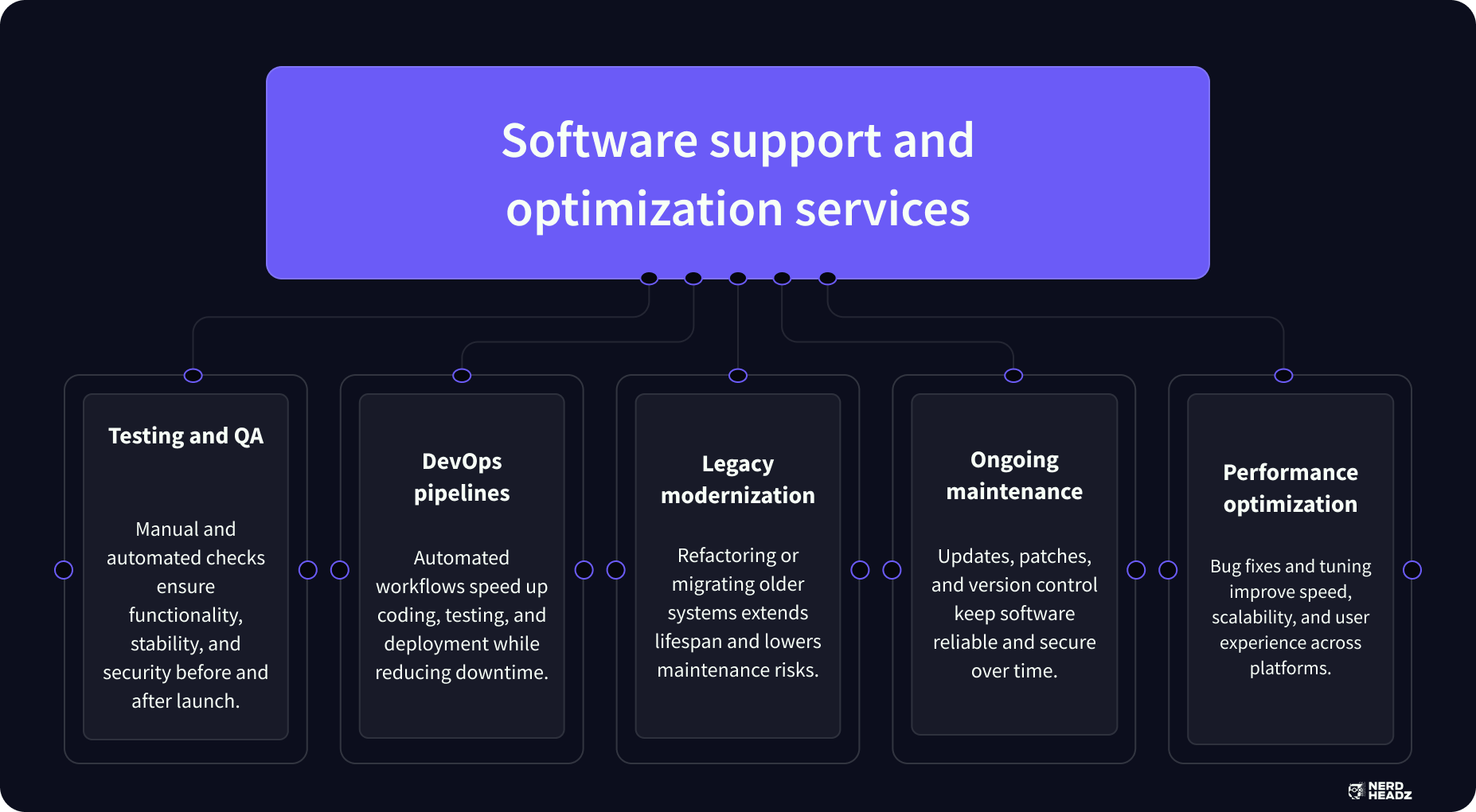
Software Testing and Quality Assurance (QA)
Software testing and QA services verify that applications work as expected before and after launch. These services are an essential part of the software development lifecycle, helping detect errors early, improve reliability, and maintain performance across different environments.
Common activities include:
- Manual and automated testing to validate functionality across platforms
- Load and performance testing to measure stability under heavy use
- Security testing to identify vulnerabilities before deployment
- Regression testing to confirm updates do not break existing features
By investing in QA throughout the software development process, companies reduce development costs, improve software quality, and avoid disruptions in live software projects.
DevOps and CI/CD Pipeline Setup
DevOps and CI/CD services streamline the development process by combining coding, testing, and deployment into automated workflows. These services shorten delivery times while improving collaboration between software developers, testers, and operations teams.
Key components include:
- Building pipelines that automatically test and deploy new code
- Using containerization and cloud platforms for scalable deployments
- Monitoring tools to track performance and detect issues quickly
- Version control and rollback options for safer updates
Adopting DevOps practices allows development teams to release updates faster, reduce downtime, and maintain consistent quality across software applications.
Legacy Software Modernization
Legacy modernization services help businesses upgrade outdated software applications to align with current business processes and technology standards. Instead of replacing existing systems entirely, a software development company can refactor, re-platform, or migrate them to modern architectures.
Typical modernization efforts include:
- Migrating applications to cloud computing environments
- Updating code to modern programming languages and frameworks
- Replacing outdated user interfaces with more accessible designs
- Integrating legacy systems with APIs or new software modules
This service extends the lifespan of older systems while reducing risks tied to security gaps and high maintenance costs.
Maintenance, Updates, & Version Control
Ongoing maintenance services keep software projects functional and secure long after initial deployment. A dedicated development team handles updates, applies patches, and manages version control systems to track changes.
Common activities include:
- Applying updates for security compliance and performance
- Tracking and documenting changes through Git or other version control tools
- Adding new features or modules to meet evolving business needs
- Monitoring systems to identify and resolve potential failures early
These services are critical for companies that want their software remains relevant while avoiding downtime or costly disruptions.
Performance Optimization & Bug Fixing
Performance optimization services address issues that impact speed, stability, and scalability. Skilled software developers and QA specialists analyze system performance to locate inefficiencies and apply targeted improvements.
Key focus areas:
- Identifying and fixing bottlenecks in databases or code execution
- Conducting software testing to reproduce and eliminate bugs
- Optimizing applications for high traffic and large datasets
- Improving memory usage and load balancing for software solutions
Regular optimization and bug fixing keep applications reliable, lower development costs over time, and support better user experiences across multiple platforms.
Software Development Services for Startups & SaaS Companies
MVP Development for Early-Stage Products
MVP (Minimum Viable Product) development gives startups a working version of their idea with just enough features to test in the market. Instead of committing to a complete build, companies use MVPs to validate demand, collect feedback, and reduce risk.
Key aspects include:
- Rapid prototyping with agile software development practices
- Building only essential features to match early business objectives
- Using frameworks for faster mobile application development or web development
- Integrating analytics to measure user behavior and adoption
MVP development is one of the most valuable types of software development services for startups since it balances speed, cost, and learning.
SaaS Application Architecture & Subscription Models
SaaS development focuses on creating applications delivered as a service through the cloud. Startups often choose this model to scale quickly and serve users globally without heavy infrastructure investment.
Common components include:
- Multi-tenant architecture that supports multiple clients securely
- Flexible subscription and billing systems for recurring revenue
- Continuous delivery pipelines for frequent updates
- Integration with APIs and third-party services for broader functionality
For SaaS development companies, this service combines software development expertise with business model design, making it easier to grow while keeping software quality consistent.
Rapid Prototyping & Iterative Builds
Rapid prototyping helps startups turn ideas into functional models quickly, allowing teams to test features and adjust based on user input. Iterative builds extend this by releasing small updates in cycles, reducing risk, and aligning with real customer needs.
Key benefits include:
- Faster validation of product-market fit
- Lower development costs through early testing
- Shorter feedback loops for design and functionality
- Flexibility to adjust priorities as software projects evolve
This service is widely used in early-stage software development where speed and adaptability are critical.
Low-Code & No-Code Development Support
Low-code and no-code development give startups the ability to build apps with minimal coding effort. A software development company can support teams by extending these platforms, adding integrations, or preparing them to scale into full custom builds.
Typical use cases include:
- Creating internal tools with drag-and-drop interfaces
- Building MVPs for quick market testing
- Integrating low-code apps with CRMs, ERPs, or APIs
- Supporting future migration to custom software development when growth demands it
This service helps startups move fast without committing to heavy engineering resources from day one.
Technical Discovery & Product Roadmapping
Discovery and roadmapping services provide structure before development begins. A development team works with stakeholders to define requirements, map dependencies, and build a clear product strategy.
Key activities include:
- Conducting market and user research to align with business objectives
- Defining features, timelines, and budgets for the software development process
- Selecting a suitable tech stack and outlining the development lifecycle
- Prioritizing deliverables to reduce risk and improve transparency
This service ensures startups have a strong foundation for software projects, minimizing missteps and aligning resources with long-term goals.
Conclusion
Choosing among the many types of software development services comes down to clarity, not complexity:
- Choose based on outcomes, not buzzwords
- Match the service to your stage, budget, and internal capabilities
- Consider pilot projects before scaling full development
Partnering with an experienced team makes the difference between simply finishing a project and building software that truly supports long-term objectives. At NerdHeadz, we provide custom software development to match your business goals and technical needs.
👉 Ready to discuss your next project? Get in touch with NerdHeadz today and let’s build the right solution together.
Frequently asked questions
What are services in software development?

Services in software development are activities that include planning, coding, testing, deployment, and maintenance of software solutions.
What are the 7 categories of software?

The 7 categories of software are system software, application software, programming software, database software, middleware, enterprise software, and embedded software.
What are the 4 types of software maintenance?

The 4 types of software maintenance are corrective, adaptive, perfective, and preventive.
What is SOA vs microservices?

What is SOA vs microservices?

Luciani Woestemeier
Luciani Zorrilla is a content marketer with experience in sales development, outbound sales, SEO, design, email marketing, and UX. She stands out in driving sustainable growth for tech startups through impactful SEO strategies and leading results-oriented marketing teams.
Related Articles
Subscribe to our Newsletter
.webp)
.webp)
Are you ready to talk about your project?
Schedule a consultation with our team, and we’ll send a custom proposal.


The demand for software development services is growing as businesses look for solutions that fit their stage, budget, and goals. From startups testing new ideas to enterprises running complex operations, the right service can distinguish between progress and delayed growth.
Here are some of the types of software development services covered in this guide:
- Custom software development for tailored solutions that fit exact business processes
- Web and mobile application development to reach users across platforms and devices
- Cloud applications that scale quickly and support remote teams
- SaaS platforms with subscription models for predictable growth
- Specialized services like AI, blockchain, or embedded systems for advanced needs
- Support and optimization services, including testing, DevOps, and modernization
Each category solves different challenges, some help you move fast, others focus on security, integration, or scaling.
What Are Software Development Services?
Software development services cover the planning, design, coding, testing, and maintenance of software solutions that support business objectives and improve operations. A software development company or software development services company helps organizations develop custom software, build mobile applications, or deliver scalable web development projects.
These services go far beyond writing code.
A typical software development lifecycle includes discovery, technical planning, UI/UX design, software engineering, deployment, and ongoing support. Skilled software developers, project managers, and software testing specialists work together to ensure that each stage produces reliable and functional software.
Businesses turn to custom software development agencies when off-the-shelf software fails to meet their needs. A trusted software development partner can create custom solutions for supply chain management, inventory management, or e-commerce software that run across multiple platforms and mobile devices.
Other projects may apply system integration, cloud computing, embedded systems, or implement artificial intelligence into software applications.
Types of Software Development Services You Should Know About

Custom Software Development Services
Custom software development focuses on building applications tailored to unique business processes rather than relying on off-the-shelf software. A custom software development company works with stakeholders to map goals, design the development process, and create software solutions that scale.
Businesses often choose this service for:
- Custom software solutions that match exact workflow automations and operations
- System integration with CRMs, ERPs, or existing systems
- Control over security, compliance, and infrastructure
- Long-term adaptability with a dedicated software development team
These projects may involve enterprise software, supply chain management tools, or industry-specific software development. With the right software engineers, companies gain solutions that remain flexible, secure, and aligned with growing business needs.

Web Application Development Services
Web development is one of the most common software development services, covering everything from commerce software to complex e-commerce software platforms. A software development agency specializing in web applications ensures accessibility across multiple platforms and mobile devices.
Key aspects include:
- Agile development and modern programming languages for faster delivery
- Built-in software testing, quality assurance, and robust security measures
- Cross-platform development to support scalability and future updates
- Integration with APIs and third-party systems for smoother workflows
Strong web development companies focus on usability, performance, and security, making web applications a cornerstone of digital transformation and long-term growth.
Mobile App Development Services (iOS, Android, Cross-Platform)
Mobile app development is one of the most widely used software development services, covering native iOS apps, Android apps, and cross-platform development. A software development company builds mobile applications that extend core business processes, improve customer interaction, and connect with existing software solutions.
Typical mobile development projects include:
- iOS or Android apps built with platform-specific frameworks
- Cross-platform mobile applications developed to reduce development costs and speed up delivery
- Integration with APIs and system software for smoother workflows
- Use of cloud computing and secure storage to maintain software quality
Software developers and mobile developers usually apply agile development methods to keep apps scalable, secure, and easy to update, ensuring the software remains relevant over time.
API Development & System Integration Services
API development and system integration services help organizations connect software applications, automate business processes, and eliminate silos between existing systems.
A software development services firm may design application programming interfaces that allow platforms like CRMs, ERPs, or third-party tools to exchange data efficiently.
Key aspects of integration services include:
- Custom APIs that connect cloud platforms, analytics tools, and internal systems
- Integration of legacy software with modern applications through new software modules
- Cross-platform data synchronization for mobile, web, and desktop environments
- Secure connections between third-party services, payment providers, or logistics platforms
Cloud Application Development Services
Cloud application development focuses on building software solutions that run on distributed infrastructure instead of local machines. This service category enables companies to develop software that scales quickly, supports remote teams, and lowers maintenance costs.

Key aspects include:
- Designing applications to run natively in cloud computing environments
- Enabling scalable software that adjusts to traffic and usage demands
- Supporting integration with AI tools, analytics, and third-party platforms
- Reducing reliance on off-the-shelf software by offering tailored cloud-native applications
Cloud-based development is widely used for mobile application development, SaaS development, and systems that need global accessibility across multiple devices.
Desktop Application Development Services
Desktop application development creates software applications designed to run directly on operating systems like Windows, macOS, or Linux.
Far from browser-based solutions, these applications provide high performance and access to system resources, making them suitable for industries with advanced technical requirements.
Examples of use cases:
- Building custom software for industries like healthcare, finance, or design
- Developing embedded systems and specialized engineering tools
- Creating commercial software products for mass distribution
- Leveraging modern frameworks to deliver scalable software with strong security
These projects require skilled software engineers and a structured software development life cycle to ensure performance, compatibility, and long-term reliability.
Enterprise Software Development Services
Enterprise software development delivers software solutions designed to support large-scale business processes across departments. These projects often require complex project management, integration with CRMs or ERPs, and the ability to scale as operations grow.
Typical features include:
- Custom software for supply chain, HR, or finance systems
- Advanced analytics and artificial intelligence for decision-making
- Centralized platforms that connect multiple software developers and teams
- A structured software development lifecycle to ensure reliability and security
Enterprise-level projects usually involve long-term collaboration with a development team to maintain functionality and adapt to evolving requirements.
SaaS (Software as a Service) Development Services
SaaS development focuses on building software applications that run in the cloud and are accessed through a subscription model. SaaS platforms are continuously updated and available on demand.
Key elements include:
- Web and mobile app access across devices
- Scalable infrastructure that supports rapid growth
- Multi-tenant architecture to serve different users on one platform
- Continuous updates within the software development process
SaaS is one of the fastest-growing types of software development services, helping businesses launch tools that serve global audiences without heavy upfront infrastructure costs.
Embedded Systems Development Services
Embedded systems development creates software solutions designed to run on specialized hardware. This service is standard in manufacturing, automotive, healthcare, and consumer electronics.
Examples of applications:
- Embedded systems in IoT devices, wearables, or medical equipment
- Real-time monitoring and automation in industrial systems
- Integration of artificial intelligence for smart functionality
- Development with a dedicated software development team skilled in low-level programming
These projects require precise control over hardware, optimized development processes, and rigorous testing to ensure stability and long-term performance.
Advanced & Specialized Software Development Services

AI & Machine Learning Development Services
AI and machine learning development services focus on creating software solutions that can learn from data, recognize patterns, and make predictions. These services are applied across industries to improve decision-making, automate tasks, and personalize user experiences.
Common use cases include:
- Artificial intelligence models for customer support, fraud detection, or medical diagnostics
- Predictive analytics tools that adapt to evolving business processes
- Recommendation engines for e-commerce and media platforms
- Computer vision systems for manufacturing or logistics
Projects in this category often require skilled software developers, large datasets, and specialized frameworks to develop accurate, scalable, and secure software.
Blockchain Application Development Services
Blockchain development services focus on building decentralized software applications that prioritize transparency, trust, and security. A software development company offering these services creates solutions that go beyond cryptocurrencies, applying blockchain to multiple sectors.
Key applications include:
- Smart contracts to automate secure transactions
- Supply chain tracking for greater visibility and accountability
- Digital identity management to reduce fraud and ensure compliance
- Decentralized apps (dApps) that run across multiple platforms
These projects demand a clear development process, strong cryptographic knowledge, and collaboration between software development teams to deliver reliable and high-performing blockchain systems.
IoT and Embedded Software Solutions Services
IoT and embedded software services focus on developing software solutions that connect physical devices with digital systems. These services allow businesses to collect data, monitor performance, and automate processes in real time.
Examples include:
- IoT platforms for smart homes, healthcare monitoring, or industrial automation
- Embedded software for wearables, automotive systems, or medical equipment
- Integration of sensors and edge computing for faster decision-making
- Security features to protect connected devices and sensitive data
Such projects require a dedicated development team skilled in low-level programming, hardware integration, and long-term maintenance.
AR/VR and Immersive App Development Services
AR/VR development services create applications that deliver immersive digital experiences through augmented reality and virtual reality. These solutions are used in industries ranging from retail and edtech to real estate, proptech, and training.
Key applications include:
- Virtual product demos for e-commerce or B2B sales
- Training simulators for healthcare, aviation, and manufacturing
- Interactive learning apps and gamified education platforms
- Immersive real estate tours or architectural visualizations
Projects combine advanced design, software development expertise, and mobile application development frameworks to ensure cross-device compatibility and engaging user experiences.
Game Development Services
Game development services specialize in designing and building interactive entertainment software for consoles, PCs, and mobile applications. A software development company in this field combines creativity, storytelling, and technical engineering to deliver engaging products.
Areas include:
- Casual and multiplayer mobile app development
- PC and console games with advanced graphics and physics engines
- Cloud gaming platforms that leverage scalable software infrastructure
- VR and AR-based gaming experiences with immersive gameplay
These projects rely on skilled software engineers, designers, and artists working together within an agile software development process to create games that perform smoothly on multiple platforms.
Software Support & Optimization Services

Software Testing and Quality Assurance (QA)
Software testing and QA services verify that applications work as expected before and after launch. These services are an essential part of the software development lifecycle, helping detect errors early, improve reliability, and maintain performance across different environments.
Common activities include:
- Manual and automated testing to validate functionality across platforms
- Load and performance testing to measure stability under heavy use
- Security testing to identify vulnerabilities before deployment
- Regression testing to confirm updates do not break existing features
By investing in QA throughout the software development process, companies reduce development costs, improve software quality, and avoid disruptions in live software projects.
DevOps and CI/CD Pipeline Setup
DevOps and CI/CD services streamline the development process by combining coding, testing, and deployment into automated workflows. These services shorten delivery times while improving collaboration between software developers, testers, and operations teams.
Key components include:
- Building pipelines that automatically test and deploy new code
- Using containerization and cloud platforms for scalable deployments
- Monitoring tools to track performance and detect issues quickly
- Version control and rollback options for safer updates
Adopting DevOps practices allows development teams to release updates faster, reduce downtime, and maintain consistent quality across software applications.
Legacy Software Modernization
Legacy modernization services help businesses upgrade outdated software applications to align with current business processes and technology standards. Instead of replacing existing systems entirely, a software development company can refactor, re-platform, or migrate them to modern architectures.
Typical modernization efforts include:
- Migrating applications to cloud computing environments
- Updating code to modern programming languages and frameworks
- Replacing outdated user interfaces with more accessible designs
- Integrating legacy systems with APIs or new software modules
This service extends the lifespan of older systems while reducing risks tied to security gaps and high maintenance costs.
Maintenance, Updates, & Version Control
Ongoing maintenance services keep software projects functional and secure long after initial deployment. A dedicated development team handles updates, applies patches, and manages version control systems to track changes.
Common activities include:
- Applying updates for security compliance and performance
- Tracking and documenting changes through Git or other version control tools
- Adding new features or modules to meet evolving business needs
- Monitoring systems to identify and resolve potential failures early
These services are critical for companies that want their software remains relevant while avoiding downtime or costly disruptions.
Performance Optimization & Bug Fixing
Performance optimization services address issues that impact speed, stability, and scalability. Skilled software developers and QA specialists analyze system performance to locate inefficiencies and apply targeted improvements.
Key focus areas:
- Identifying and fixing bottlenecks in databases or code execution
- Conducting software testing to reproduce and eliminate bugs
- Optimizing applications for high traffic and large datasets
- Improving memory usage and load balancing for software solutions
Regular optimization and bug fixing keep applications reliable, lower development costs over time, and support better user experiences across multiple platforms.
Software Development Services for Startups & SaaS Companies
MVP Development for Early-Stage Products
MVP (Minimum Viable Product) development gives startups a working version of their idea with just enough features to test in the market. Instead of committing to a complete build, companies use MVPs to validate demand, collect feedback, and reduce risk.
Key aspects include:
- Rapid prototyping with agile software development practices
- Building only essential features to match early business objectives
- Using frameworks for faster mobile application development or web development
- Integrating analytics to measure user behavior and adoption
MVP development is one of the most valuable types of software development services for startups since it balances speed, cost, and learning.
SaaS Application Architecture & Subscription Models
SaaS development focuses on creating applications delivered as a service through the cloud. Startups often choose this model to scale quickly and serve users globally without heavy infrastructure investment.
Common components include:
- Multi-tenant architecture that supports multiple clients securely
- Flexible subscription and billing systems for recurring revenue
- Continuous delivery pipelines for frequent updates
- Integration with APIs and third-party services for broader functionality
For SaaS development companies, this service combines software development expertise with business model design, making it easier to grow while keeping software quality consistent.
Rapid Prototyping & Iterative Builds
Rapid prototyping helps startups turn ideas into functional models quickly, allowing teams to test features and adjust based on user input. Iterative builds extend this by releasing small updates in cycles, reducing risk, and aligning with real customer needs.
Key benefits include:
- Faster validation of product-market fit
- Lower development costs through early testing
- Shorter feedback loops for design and functionality
- Flexibility to adjust priorities as software projects evolve
This service is widely used in early-stage software development where speed and adaptability are critical.
Low-Code & No-Code Development Support
Low-code and no-code development give startups the ability to build apps with minimal coding effort. A software development company can support teams by extending these platforms, adding integrations, or preparing them to scale into full custom builds.
Typical use cases include:
- Creating internal tools with drag-and-drop interfaces
- Building MVPs for quick market testing
- Integrating low-code apps with CRMs, ERPs, or APIs
- Supporting future migration to custom software development when growth demands it
This service helps startups move fast without committing to heavy engineering resources from day one.
Technical Discovery & Product Roadmapping
Discovery and roadmapping services provide structure before development begins. A development team works with stakeholders to define requirements, map dependencies, and build a clear product strategy.
Key activities include:
- Conducting market and user research to align with business objectives
- Defining features, timelines, and budgets for the software development process
- Selecting a suitable tech stack and outlining the development lifecycle
- Prioritizing deliverables to reduce risk and improve transparency
This service ensures startups have a strong foundation for software projects, minimizing missteps and aligning resources with long-term goals.
Conclusion
Choosing among the many types of software development services comes down to clarity, not complexity:
- Choose based on outcomes, not buzzwords
- Match the service to your stage, budget, and internal capabilities
- Consider pilot projects before scaling full development
Partnering with an experienced team makes the difference between simply finishing a project and building software that truly supports long-term objectives. At NerdHeadz, we provide custom software development to match your business goals and technical needs.
👉 Ready to discuss your next project? Get in touch with NerdHeadz today and let’s build the right solution together.

Luciani Zorrilla is a content marketer with experience in sales development, outbound sales, SEO, design, email marketing, and UX. She stands out in driving sustainable growth for tech startups through impactful SEO strategies and leading results-oriented marketing teams.

%201.svg)

%201.svg)
%201.webp)

%201.webp)
.png)
